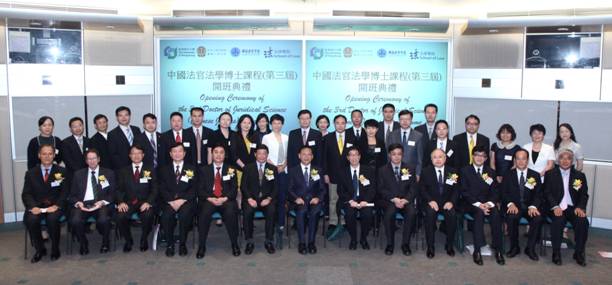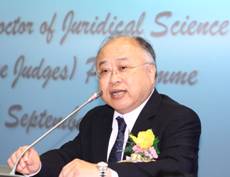The CityU Law School held the opening ceremony of the 3rd Doctor of Juridical Science (Chinese Judges) Programme on 16 September 2013. This year, a total of 24 Chinese judges joined the School. The ceremony was attended by the following officiating guests: Justice JIANG Bixin, Vice-President, Supreme People’s Court of the People’s Republic of China; Mr Herman HU Shao-ming, Council Chairman, City University of Hong Kong; Professor HUANG Yongwei, President, National Judges College of the People’s Republic of China; Professor Way KUO, President and University Distinguished Professor, City University of Hong Kong; Dr LIU Xinkui, Director-General, Legal Affairs Department, Liaison Office of the Central People’s Government in the HKSAR; Mr LI Lu, Director-General, Department of Educational, Scientific and Technological Affairs, Liaison Office of the Central People's Government in the HKSAR; The Hon Andrew LIAO Cheung-sing, GBS, SC, JP, Member of International Advisory Board, School of Law, City University of Hong Kong, Non-official Member of Executive Council of HKSAR; Mr Ambrose S K LAM, President, Law Society of Hong Kong; Mr Paul SHIEH SC, Chairman, Hong Kong Bar Association; Mr GUO Qingliang, Chairman of China Legal Service (H.K.) Ltd.; Professor Arthur ELLIS, Provost, City University of Hong Kong; Professor WANG Guiguo, Director, Centre for Judicial Education and Research, City University of Hong Kong; and Professor LIN Feng, Acting Dean, School of Law, City University of Hong Kong. |











